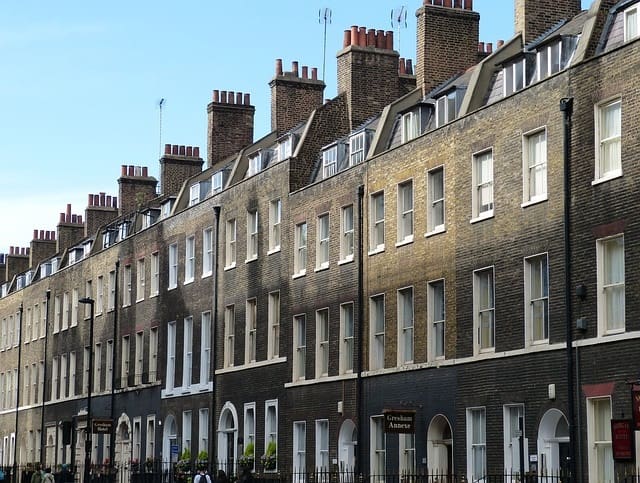
By Local Democracy Reporter Daniel Esson
Thousands of homes across the county sit empty for much of the year, used mainly for weekend getaways and holiday breaks.
But new rules set to be introduced by every council in Kent mean those enjoying the luxury of owning a second residence will soon have to pay a premium for it:
A council tax bill for £2,302 a month lands on the doormat of a house in Broadstairs.
It’s not until weeks later it’s picked up by the homeowners, who’ve travelled down from London for a weekend break on the Kent coast.
The house is one of two they own – their main residence in the capital – and sits empty for the majority of the year, although they pay their council tax like everyone else.
But soon they’ll be forced to fork out a heftier price for the privilege – £4,604 in this hypothetical case for a Band D home.
Because Thanet District Council, and all of its counterparts across Kent, have voted to double council tax bills for second home owners.
With more than 7,500 such properties in the county, the move is set to bolster the coffers of cash-strapped local authorities.
But it is also designed to discourage second home ownership, with many believing it will free up properties for those who need them amid a housing crisis in Kent.

“Homes are residences for people to live in, they’re not investment opportunities – or at least they shouldn’t be,” says Thanet district councillor Mike Garner.
He’s one of many who supported bringing in the new rules, which will be introduced in every district across Kent from next April.
Under the Levelling Up and Regeneration Act 2023 – passed in October – local councils were given the power to charge extra council tax on second homes, and they’ve been quick to take up the opportunity.
While recognising Thanet – Kent’s hotspot with almost 2,000 second homes – is an attractive destination to buy an extra property, Cllr Garner says the new rules should go even further.
“It’s a good step in the right direction, but I’d like to see councils have the ability to increase [bills] quicker, because I think we should be discouraging people from having second homes,” said the Green Party member for St Peter’s Ward in Broadstairs.
“I’m not saying they should be confiscated, you can’t do that, but it is galling.
“On the one hand you have plans for thousands of houses to be built on Grade One agricultural land, while on the other we see thousands of houses sitting empty or not being used as primary residences, and it doesn’t add up.”
So what exactly is a second home, and who will be forced to cough up?
Well, essentially it’s a furnished property that isn’t used as a primary residence or rented out.
It means the new charges will not apply to homes on the standard rental market or those let out as Airbnbs on a short-term basis.
Any home being actively marketed for sale or rent will also be exempt.

Canterbury city councillor Chris Cornell owns three properties but will not be hit by the council tax premium on the extra two.
He previously rented both out as holiday homes, but now lets them long-term to private tenants.
He believes the new rules are fair, and that those who own unoccupied second homes should have to pay extra for the luxury.
“I think it’s worth saying that it’s not a silver bullet – but essentially it is a practical first step,” said the Labour member for Gorrell Ward in Whitstable.
“I don’t think there’s a principled problem [with second home ownership] as long as they appreciate that they have to pay a premium for it.
“I think if people have bought a second home they should expect to essentially be taxed more, and local authorities should do all they can to encourage the provision of good-quality private accommodation for people who live in their area; that should be their predominant concern.”

Paula Higgins, founder and chief executive of the Homeowners Alliance, says implementing the charges is a “no-brainer” for councils short on cash, with TDC alone saying the move will net it an extra £540,800 a year.
She supports the premiums, but argues that for many who own second homes as a “lifestyle choice”, higher bills may not encourage them to sell up or rent out.
She even believes some owners could bypass the new rules by renting their properties out for 70 days a year, seeing them taxed as small businesses rather than private homes.
“What it could do is it could cause people to avoid the council tax additional rate and turn it into a business by renting it out for a certain number of days of the year and paying business rates,” she explained.
Ms Higgins is also pessimistic about how the move will help address a housing crisis caused in part by a lack of affordable homes and fewer rental properties available at reasonable rates.
“Even the money raised on the second homes tax by local authorities – that money isn’t going to be ploughed back into affordable housing,” she continued.
“There’s lots of reasons why houses aren’t being built and this money will go back into the local authority’s coffers – it will do nothing to help the housing crisis.”
New legislation
The new legislation will also bolster existing powers local authorities have to charge extra council tax on long-term empty homes – properties that are substantially unfurnished and unoccupied.
Previously, owners of homes empty for two years were charged double council tax, but this timeframe is being reduced to one year from next April.
Those with homes empty for five years will still pay three times as much, and four-fold for properties unoccupied for a decade or more.
Councils in Kent estimate the new rates for second homes and empty properties will generate them an extra £3.77 million a year combined.
Medway, with 341 second homes and 392 empty properties, will bag the most, at just over £1 million.
Other areas have more homes set to attract the higher rates, but presumably in lower council tax bands.
Gravesham has just 21 second homes and 148 unoccupied properties, so stands to rake in just £18,000 more – the lowest in Kent.

